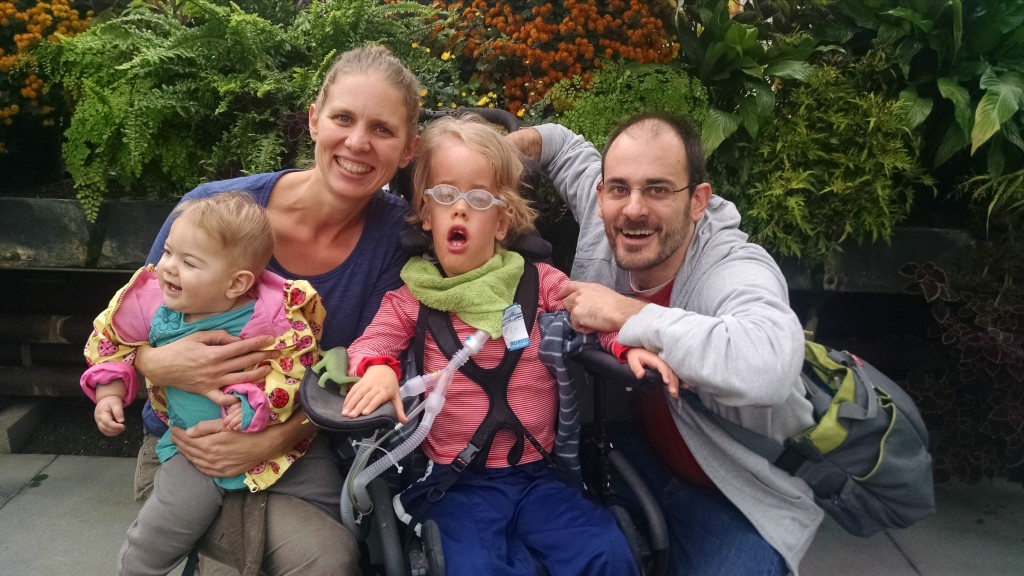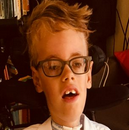Looking for parenting advice (Nov. 22)
It’s been a while since we’ve blogged. The short version of our life is that we are lucky to have two amazing kids who make us laugh  every day. Ida has developed a gleeful giggle, and Lucas’s sense of humor just keeps getting better and better. He’s into telling jokes (“What did the dung beetle say to the toilet? You look a little flushed.”) But even more than learned jokes, he has an incredibly ability to notice each person’s idiosyncrasies and then tease us with them at exactly the right moment. The other day his cousins and Aunt Ashley were here visiting, and Ashley was trying to get the girls out the door. As they were putting on their shoes Lucas shouted “Bye, ladies!” He was parroting Ashley, and his delivery was so spot-on that we all cracked up. Lucas beams when he makes us laugh. His cousin Tya responded “Bye, man!” Hours later when Lucas and I were out, I looked in the rear view mirror of the van and saw Lucas smiling to himself. When I asked him what was so funny, he said he was just remembering Tya’s response to his joke.
every day. Ida has developed a gleeful giggle, and Lucas’s sense of humor just keeps getting better and better. He’s into telling jokes (“What did the dung beetle say to the toilet? You look a little flushed.”) But even more than learned jokes, he has an incredibly ability to notice each person’s idiosyncrasies and then tease us with them at exactly the right moment. The other day his cousins and Aunt Ashley were here visiting, and Ashley was trying to get the girls out the door. As they were putting on their shoes Lucas shouted “Bye, ladies!” He was parroting Ashley, and his delivery was so spot-on that we all cracked up. Lucas beams when he makes us laugh. His cousin Tya responded “Bye, man!” Hours later when Lucas and I were out, I looked in the rear view mirror of the van and saw Lucas smiling to himself. When I asked him what was so funny, he said he was just remembering Tya’s response to his joke.
But another component of the story of our life right now is that it is brimming full, sometimes with wonder, but also sometimes with overwhelm. First grade has been much harder than kindergarten or preschool for us. School is really the one time that Lucas is out in the world without Burke or me – a really important experience in and of itself for a six year old. And I know Lucas loves it – he’s disappointed when his insomnia means he can’t make it to the end of the day at school, or when he has to miss school for doctors appointments.
But for Lucas to be out in the world, he needs a lot of help. Lucas needs help to do everyday tasks that most of us take for granted – reaching out to shake hands, or grabbing an item someone is passing his way; readjusting his position in a chair when he starts to get uncomfortable; turning to look at a person next to him who is speaking; turning to look behind him if there’s an unfamiliar noise; looking down to see an item on a table; adding or taking off layers if he’s too hot or too cold; moving over toward someone he wants to see; moving away if someone is annoying him. Burke and I can’t quite read his mind, but we are so in sync with Lucas that in most any setting we can guess what Lucas is going to want to do, give him choices, and then go do it. Of course we have our less-than-perfect moments where our own needs, or our whole family’s needs, trump Lucas’s for a moment. But he knows we’ll eventually push him over to where he wants to go, or turn his head so he can see, so he keeps asking us until we do it.
With other people, though, I see him get quiet. So if you’re not actively engaging him, giving him options and then asking again in a way that makes sense to him, he sometimes gets passive. As I see some of the people around him not doing enough to keep him included, and then see him accept that treatment, my heart breaks. I know that he wants to play with other kids, or that he wants to go up to his teacher and tell her that he just figured out her name is a “wumber” (word+number, meaning a word you could write it with a number, like “a10tion” or “1derful”.) One morning before school he told me he wanted to ask his teacher about her trip. I said that was a great idea. He then asked if I was going to school with him so I could help him ask her. I felt so sad that he has so many adults around him at school who could help him, but for a myriad of reasons – like that he doesn’t have confidence they will understand him or even do what he asks – he might just skip trying to approach his teacher all together. I don’t know what to say about all this to Lucas, so I just remind him to tell the people around him what he wants and needs.
Some of these things are probably universal to parenting. You have to let your kid out of your sight and trust they’ll be OK even when the adults around them aren’t perfectly attentive to their needs all the time. But some of this is specific to disability, since Lucas is so heavily reliant on the people who help him. So we’re starting to work with Lucas on self-advocacy, and one of the therapists at school came up with a great framework for doing that: being a “superhero” who stands up for his rights. But standing up for myself is hard enough as an adult, so how should I expect my kid to do it? Nonetheless, we’re talking about it, and he is getting better at telling us what he needs – like, if can’t see the words on the book we’re holding up for him, he now tells us which way to move it. Still, I’m not convinced that all the adults in his life are giving him the positive reinforcement he needs to develop this skill.
And so I have a question for our blog readers, especially those of you who grew up with a disability: as you reflect back on the ways your parents did or didn’t support you, what did they do well for you to prepare you for the underwhelming adults in your life? What more do you wish your parents had done? I’m realizing I can’t force people to love Lucas and work as hard as we do for him, but even that realization is heart breaking for me. So I guess my second question is for parents who have been through this: what have you done to live with letting your child out of your care at times, even when it wasn’t ideal?
I sat down last night to write a letter to an older Lucas to tell him how amazing he is. He blows me away regularly, and although I tell him now about how much I admire him, he’s too young to get it. (I tell him he’s totally amazing, and he just says “Aw, thanks Mommy,” in a voice that perfectly parrots the way I talk to him.) While I spend my time stewing about how to force people to love Lucas and do their jobs 110 percent all the time, Lucas kills them with kindness. On Thursday at school they were talking about Thanksgiving, and the teacher invited all the kids to say something they were thankful for. Lucas said “I’m thankful for the people that help me.”

